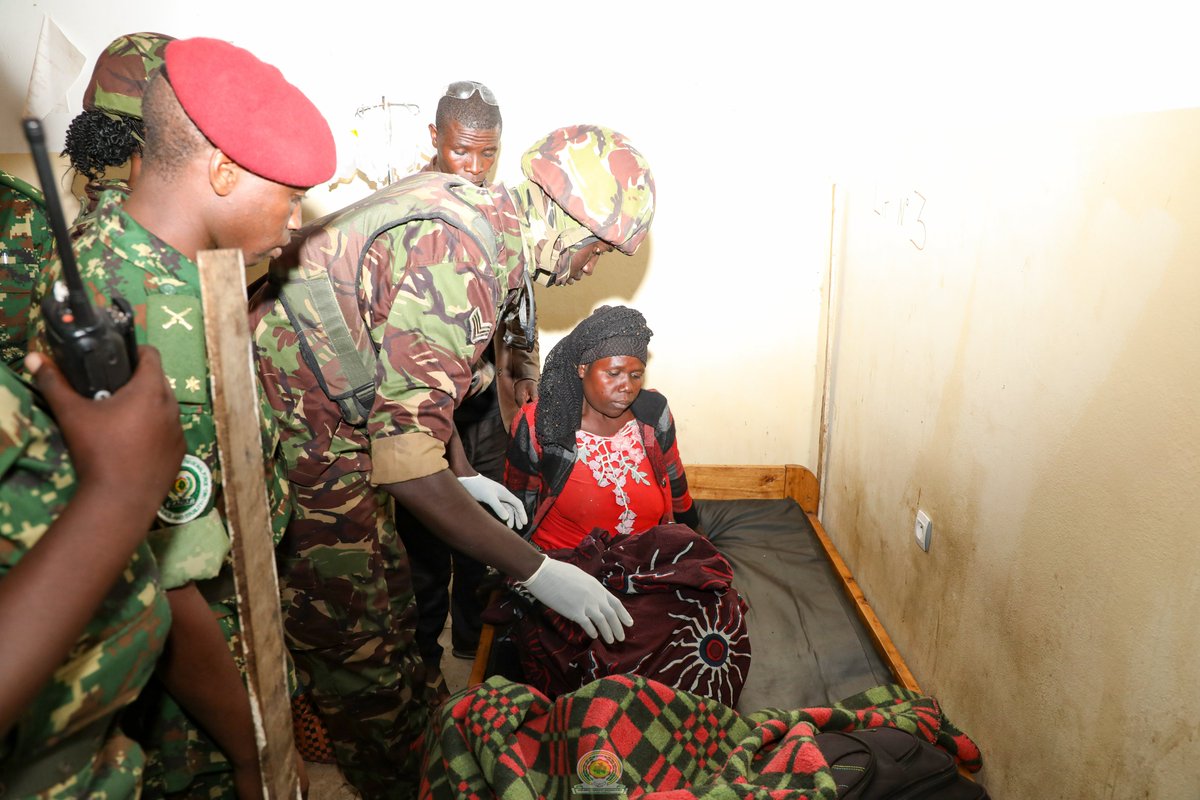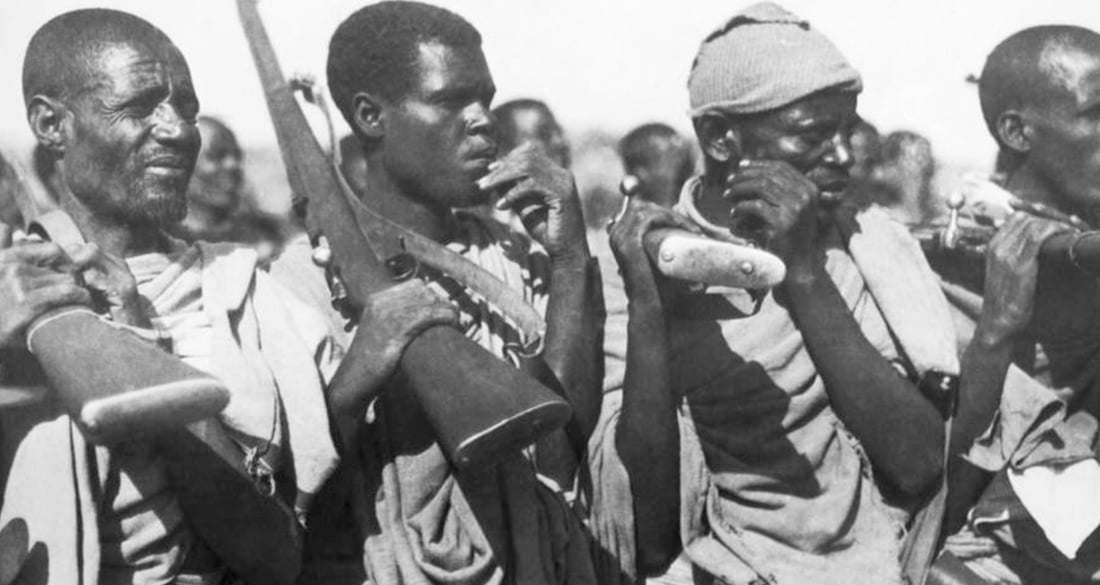African Soldiers Disarm Civilians: A Comprehensive Analysis
The issue of African soldiers disarming civilians has gained significant attention in recent years, sparking debates and discussions about the complexities of military operations on the continent. This phenomenon is rooted in historical, political, and socio-economic factors that influence the relationship between armed forces and civilian populations. Understanding this dynamic is crucial for addressing the underlying causes and finding sustainable solutions.
In various African nations, the disarmament of civilians by military personnel is often justified as a measure to maintain peace and security. However, this practice raises concerns about human rights violations, trust between communities and the military, and the broader implications for regional stability. This article aims to provide an in-depth exploration of the topic, shedding light on its causes, consequences, and potential resolutions.
As we delve into this sensitive subject, it is essential to examine the historical context, legal frameworks, and real-world examples that illustrate the challenges faced by African nations in balancing security needs with civilian rights. Through this analysis, we hope to contribute to a better understanding of the complexities involved and inspire meaningful dialogue toward resolving these issues.
- Taylor Swift Bikini Instagram
- Large Cat Litter Box
- Woman Who Accused Emett Til
- Scott Hall Death Cause
- How Old Was Jennifer Gray In Dirty Dancing
Table of Contents
- Historical Context of Disarmament in Africa
- Legal Frameworks Governing Disarmament
- Causes of African Soldiers Disarming Civilians
- Consequences of Disarmament on Civilian Populations
- Human Rights Concerns and Violations
- Case Studies: Examples from African Countries
- Impact on Community Relations and Trust
- Potential Solutions and Recommendations
- Data and Statistics Supporting the Analysis
- Future Outlook and Projections
Historical Context of Disarmament in Africa
Disarmament in Africa has deep historical roots that date back to colonial times. During the colonial era, European powers often imposed strict control over weapons to suppress resistance and maintain dominance. This legacy of militarization persisted even after independence, with many African nations inheriting centralized control over arms and ammunition.
Colonial Influence on Disarmament
The colonial legacy has shaped the way African nations approach disarmament. Many countries adopted similar policies of controlling civilian access to weapons, often justified by the need to maintain order and prevent conflict. However, this approach sometimes led to tensions between the military and civilian populations, particularly in regions with a history of armed resistance.
Post-Independence Challenges
After gaining independence, African nations faced new challenges in managing their armed forces and civilian populations. The proliferation of small arms and light weapons during conflicts further complicated efforts to disarm civilians. In some cases, the lack of effective governance and weak institutions contributed to the misuse of power by military personnel.
- Iain Armitage Net Worth
- Mary Kay Letourneau Husband Now
- Man Put Fireworks On His Head
- Who Is Anderson Cooper Seeing
- Where Is Chase Stokes From
Legal Frameworks Governing Disarmament
The disarmament of civilians by African soldiers is governed by a combination of national laws, regional agreements, and international human rights standards. These frameworks aim to ensure that disarmament efforts are conducted in a manner that respects human rights and promotes peace.
Regional Agreements
- African Union (AU) protocols emphasize the importance of disarmament, demobilization, and reintegration (DDR) programs.
- Regional bodies like ECOWAS have developed specific guidelines for managing arms and ensuring civilian safety.
International Standards
International human rights instruments, such as the Universal Declaration of Human Rights and the Geneva Conventions, provide a framework for protecting civilians during disarmament operations. These standards emphasize the need for transparency, accountability, and respect for individual rights.
Causes of African Soldiers Disarming Civilians
Several factors contribute to the phenomenon of African soldiers disarming civilians. Understanding these causes is essential for addressing the root issues and preventing future occurrences.
Security Concerns
- Armed conflicts and insurgencies often lead to heightened security measures, including the disarmament of civilians.
- Illicit arms trafficking and the proliferation of weapons exacerbate the situation, prompting military intervention.
Economic Factors
Poverty and economic instability can drive individuals to acquire weapons for self-defense or criminal activities. This creates a cycle of violence that military forces may attempt to break by disarming civilians.
Consequences of Disarmament on Civilian Populations
The disarmament of civilians by African soldiers can have both positive and negative consequences. While it may reduce violence in certain areas, it can also lead to human rights abuses and undermine community trust.
Positive Outcomes
- Reduced levels of violence and improved security in conflict-affected areas.
- Facilitation of humanitarian aid and development programs in disarmed regions.
Negative Impacts
Disarmament efforts can result in displacement, loss of livelihoods, and increased vulnerability for civilians. In some cases, it may even lead to resentment and further conflict between communities and the military.
Human Rights Concerns and Violations
One of the most significant challenges associated with the disarmament of civilians by African soldiers is the potential for human rights violations. These violations can include arbitrary arrests, torture, and extrajudicial killings.
Reporting Mechanisms
International organizations and local human rights groups play a crucial role in monitoring and reporting on these violations. Their efforts help hold military personnel accountable and promote justice for affected communities.
Accountability and Justice
Ensuring accountability for human rights abuses is essential for restoring trust between civilians and the military. This can be achieved through independent investigations, legal proceedings, and reparations for victims.
Case Studies: Examples from African Countries
Several African countries have experienced situations where soldiers disarmed civilians, leading to both positive outcomes and significant challenges. Examining these case studies provides valuable insights into the complexities of disarmament.
Case Study 1: South Sudan
In South Sudan, disarmament efforts have been part of broader peacebuilding initiatives aimed at reducing violence and fostering reconciliation. However, these efforts have faced challenges, including resistance from armed groups and concerns about civilian safety.
Case Study 2: Central African Republic
The Central African Republic has witnessed numerous disarmament campaigns by both national and international forces. While some of these campaigns have contributed to improved security, others have resulted in human rights abuses and displacement of civilians.
Impact on Community Relations and Trust
The relationship between African soldiers and civilian populations is a critical factor in determining the success of disarmament efforts. Building trust and fostering positive community relations are essential for achieving lasting peace.
Building Trust
- Engaging in dialogue with community leaders and stakeholders to address concerns and grievances.
- Implementing transparency and accountability measures during disarmament operations.
Challenges to Trust
Historical grievances, cultural differences, and perceptions of bias can hinder efforts to build trust between military personnel and civilians. Addressing these challenges requires a comprehensive approach that involves all stakeholders.
Potential Solutions and Recommendations
Addressing the issue of African soldiers disarming civilians requires a multi-faceted approach that incorporates legal, social, and economic solutions. Below are some recommendations for improving disarmament practices:
Strengthening Legal Frameworks
- Revising national laws to ensure compliance with international human rights standards.
- Enhancing regional cooperation and information-sharing on disarmament practices.
Promoting Community Engagement
Involving local communities in disarmament efforts can help ensure that their needs and concerns are addressed. This can be achieved through participatory approaches that prioritize inclusivity and transparency.
Data and Statistics Supporting the Analysis
Data and statistics play a vital role in understanding the scope and impact of disarmament efforts in Africa. Below are some key figures that highlight the challenges and opportunities associated with this issue:
- According to the Small Arms Survey, there are approximately 50 million small arms in circulation in Africa, many of which are in the hands of civilians.
- A study by the African Union found that disarmament programs in conflict-affected areas resulted in a 30% reduction in violence.
Future Outlook and Projections
The future of disarmament efforts in Africa will depend on the ability of governments, military forces, and international partners to address the underlying causes of the issue. By adopting a holistic approach that prioritizes human rights, community engagement, and sustainable development, it is possible to achieve lasting peace and security.
Predictions for the Future
- Increased focus on disarmament, demobilization, and reintegration (DDR) programs as part of broader peacebuilding initiatives.
- Greater emphasis on accountability and transparency in military operations involving civilian populations.
Conclusion
In conclusion, the disarmament of civilians by African soldiers is a complex issue with far-reaching implications for peace, security, and human rights. By examining the historical context, legal frameworks, and real-world examples, we have gained a deeper understanding of the challenges and opportunities associated with this phenomenon. Moving forward, it is essential to prioritize solutions that promote trust, accountability, and respect for human rights.
We invite you to join the conversation by sharing your thoughts and experiences in the comments section below. Together, we can contribute to a more informed and constructive dialogue on this critical issue. For further reading, explore our other articles on topics related to peacebuilding and conflict resolution in Africa.
Article Recommendations
- Taylor Swift Super Bowl Biden
- Titanic 2 Titanic 2 Titanic 2
- Is Kylie Jenner White
- Phil Collins Youll Be In My Heart
- That Is 70s Show



Detail Author:
- Name : Dr. Dulce Kris
- Username : liam.moore
- Email : rose76@fay.org
- Birthdate : 1979-04-11
- Address : 6970 Tito Trail West Eldastad, MN 08730
- Phone : (951) 870-0160
- Company : Conn Group
- Job : Forester
- Bio : Dolor nam dolorem omnis iste. Error et a culpa quo minima tempora. Aut nemo aut quia quibusdam vero provident. Ea dolores commodi quidem earum aut.
Socials
twitter:
- url : https://twitter.com/odie.ankunding
- username : odie.ankunding
- bio : Quis ea quod tempora voluptatem accusantium rerum libero consequatur. Hic sit esse recusandae consectetur quia voluptatibus. Magni nostrum sint nihil id rerum.
- followers : 6170
- following : 1175
tiktok:
- url : https://tiktok.com/@odie6565
- username : odie6565
- bio : Omnis tempore repellendus sed magni animi. Doloribus sit labore impedit iure.
- followers : 6914
- following : 1662